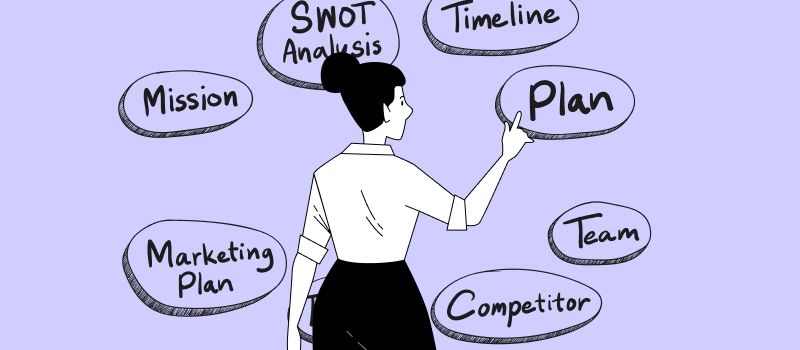
It all began in the late 60s when IMPA and PMI brought into light a conceptually new approach to managing projects by introducing a project manager. Quite soon it became obvious that every project to become successful needs a leader to coordinate its phases and make sure a project stays on budget, on time and has sufficient resources for the implementation. Since then popularity and demand for a project manager has been constantly increasing.
Project Manager’s Role in Present-Day Business Reality
Nowadays about 89% of high performing companies employ project managers according to the statistics. And there is nothing to be surprised with. To stay on top, a business has to grow. Stagnation is unaffordable. Development designates launching of many new projects, normally associated with a certain degree of risk. Who would deny the assistance of a professional and experienced person with the right skills and qualifications, capable of taking all processes under control? A project manager is in charge of planning, organizing, monitoring, reporting on the project as well as forecasting possible risks and procreating a correct reacting approach. This role could hardly be overvalued.
Responsibilities of Project Managers
It is definitely not enough to put a name sign on a project manager’s office door, as this job requires a truly competent person at the steering wheel. Since project manager’s responsibilities include all of the project stages, supervision and control of the entire project cycle and human resources. Let’s take a closer look at the main responsibilities of a project manager and put down an evaluating criterion for each one of them:
Project planning
Project planning for no doubt could be claimed as the key factor. At this stage, a project manager should foresee all potential difficulties and obstacles on the way of project implementation to determine project phases and set deadlines, scope of work, allocate resources, etc. Each event/action should be measured in terms of the azimuth deflection of its outcome.
-
Evaluating criterion:
An ability to break down main project phases into smaller ones and assign tasks accordingly. A good PM has to view and control the logic of the entire process through a bunch of smaller steps.
An ability to break down main project phases into smaller ones and assign tasks accordingly. A good PM has to view and control the logic of the entire process through a bunch of smaller steps.
Managing a project team
Managing a project team is vital for project success. A PM is normally responsible for putting together a team capable of successfully completing all consequent project stages. It is a PM’s job to present a scope of work and monitor its fulfillment. Therefore, streamlined communication and efficient problem solving should be on top of the list.
-
Evaluating criterion:
Objective factors such as staff turnover rate, job satisfaction and team motivation are indicative.
Risk management
Risk management is inherent to any process and should not be neglected. A Guide of PMBOK (Project Manager Body of Knowledge), divides this responsibility in two main blocks: 1) risk identification and assessment, and 2) development of a responding strategy. A PM is the one who analyses all potential threats that may arise at different stages of a project lifecycle. Making the employees aware of risks is a part of risk prevention strategy used extensively in the Integrated Management Systems worldwide.
-
Evaluating criterion:
A skill to outline a clear plan of risk management in advance and having a plan-B up the sleeve.
Time management
Time management is probably one of the toughest tasks. To keep all of the project phases within schedule, a PM has to guarantee that all deadlines are met. In this respect, time tracking software is of great help. It will allow viewing the exact time allocation to projects, tasks and customers. Making time planning as easy as pie.
-
Evaluating criterion:
Keeping track of time, analysis and optimization of time expenses based on time-tracking reports.
Managing project’s budget
Managing project’s budget is fundamental. A rule of thumb for any PM is to make sure the project stays within its budget prior to all other concerns.
-
Evaluating criterion:
An ability to find a feasible solution for all project-related issues.
Monitoring and permanent control
Monitoring and permanent control – to prevent things from falling into pieces. A PM’s sleepless eye should follow all pre-set progress metrics of a project. As the situation may change in a blink.
-
Evaluating criterion:
An ability to keep in mind all the smallest details and see the big picture at the same time. A puzzle could only be completed if all the pieces are on the right places.
Meeting customer’s needs
Meeting customer’s needs – in the end of the day is the purpose of most projects. A successful project should not simply meet, but exceed customer’s expectations. A wise PM is particularly attentive to any feedback and requests of the customer. Ideally a project should evolve in close collaboration of both sides.
-
Evaluating criterion:
An ability to establish mutual understanding with the customers, manage their expectations and keep in touch.
Reporting
Reporting – project planning implies choosing an appropriate type and form of reporting. PM’s reports throughout the whole project life cycle should meet the requirements of precision and transparency. Reporting normally is the main way for the customer to ensure that things go in the right way.
-
Evaluating criterion:
Attention to end and every detail.
Final Thoughts
To sum up, we must acknowledge that project manager responsibilities vary in their priority and number, also the set may depend on a business and its particular challenges. Above is the list of core PM responsibilities that define on-the-job-success and make projects happen.












































